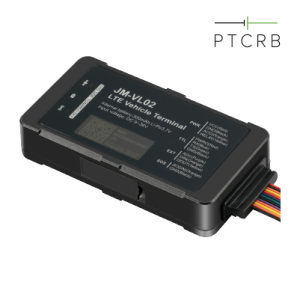In today’s fast-paced world, logistics plays a crucial role in the success of any business. More and more companies rely on the efficient management of their fleets and drivers to stay competitive in the market. One of the keys to achieving this efficiency is through the use of modern technology and smart strategies. In this article, we will discuss four essential methods to efficiently manage logistics fleets and drivers.
![[4 Essential Methods] How to Efficiently Manage Logistics Fleets and Drivers](https://www.jimilab.com/wp-content/uploads/2023/07/4-Essential-Methods-How-to-Efficiently-Manage-Logistics-Fleets-and-Drivers-1024x574.jpg)
1. Intelligent Upgrade of Fleet Equipment
To remain competitive in the logistics industry, it is necessary to keep your fleet updated with the latest technology. An intelligent upgrade of fleet equipment can significantly improve the efficiency of your logistics operation. Here are some examples of intelligent fleet equipment upgrades:
- Telematics: Telematics systems enable real-time tracking of vehicles, monitoring vehicle performance, and providing valuable insights to improve fleet efficiency. According to a study by MarketsandMarkets, the global telematics market size is projected to reach $62.6 billion by 2025, with a CAGR of 20.7% during the forecast period (2020-2025).
- Advanced driver assistance systems (ADAS): ADAS technologies, such as adaptive cruise control, lane departure warnings, and automatic emergency braking, can improve driver safety and reduce the likelihood of accidents. These systems not only protect your valuable assets but also reduce insurance costs and potential legal liabilities.
- Predictive maintenance: Integrating predictive maintenance tools into your fleet management system can help you monitor the health of your vehicles, predict potential issues, and schedule maintenance proactively. This can minimize downtime, reduce repair costs, and extend the lifespan of your fleet.
2. Digital Operation
Digital transformation is a crucial factor for improving fleet management efficiency. By digitizing your operations, you can streamline processes, optimize routes, and make data-driven decisions. Here are some digital tools that can enhance your fleet management:
- Fleet management software: A comprehensive fleet management software solution can help you manage your fleet operations, including vehicle tracking, fuel management, maintenance scheduling, and driver performance monitoring. According to Allied Market Research, the global fleet management market is expected to reach $34 billion by 2022, growing at a CAGR of 24.5% from 2016 to 2022.
- Route optimization software: Optimizing routes can significantly reduce fuel consumption, travel time, and operational costs. Route optimization software uses advanced algorithms to find the most efficient routes, taking into account factors such as traffic, road conditions, and delivery schedules.
- Electronic logging devices (ELDs): ELDs automatically record driver hours of service, ensuring compliance with regulations and improving driver safety. ELD adoption can also help you identify inefficiencies in your operation and improve overall productivity.
3. Fleet Management Assessment
Regular fleet management assessments are essential to maintaining efficiency and identifying areas for improvement. By analyzing key performance indicators (KPIs), you can measure the effectiveness of your fleet management strategies and make necessary adjustments. Some important KPIs to monitor include:
- Total cost of ownership (TCO): TCO takes into account the purchase price, fuel costs, maintenance expenses, insurance, and depreciation of your vehicles. Monitoring TCO can help you make informed decisions about your fleet’s composition and lifecycle management.
- Fuel efficiency: Analyzing fuel consumption data can help you identify inefficiencies, improve fuel management, and reduce operating costs. Implementing fuel-saving technologies and training drivers in eco-driving techniques can further enhance fuel efficiency.
- Vehicle utilization: Measuring vehicle utilization can help you optimize your fleet size, reduce idle time, and ensure that your vehicles are being used effectively.
4. Driver Assessment
Your drivers are the backbone of your logistics operation, and their performance directly impacts the efficiency and safety of your fleet. Regular driver assessments can help you identify areas for improvement and ensure that your drivers are well-trained and competent. Some key aspects of driver assessment include:
- Driving behavior monitoring: Monitoring driving behaviors, such as speeding, harsh braking, and rapid acceleration, can help you identify unsafe practices and provide targeted training to improve driver safety.
- Driver scorecards: Implementing driver scorecards can help you objectively evaluate driver performance based on various criteria, such as safety, fuel efficiency, and on-time deliveries. This can promote healthy competition among drivers and encourage continuous improvement.
- Training and development: Providing ongoing training and development opportunities can help your drivers stay up-to-date with the latest industry best practices, technologies, and regulations.
In conclusion, implementing these four essential methods – intelligent upgrade of fleet equipment, digital operation, fleet management assessment, and driver assessment – can significantly improve the efficiency of your logistics fleet and drivers. By staying ahead of technological advancements and continuously monitoring and optimizing your operations, you can ensure the long-term success of your logistics business.
 EN
EN ES
ES PT
PT TH
TH VN
VN JP
JP



